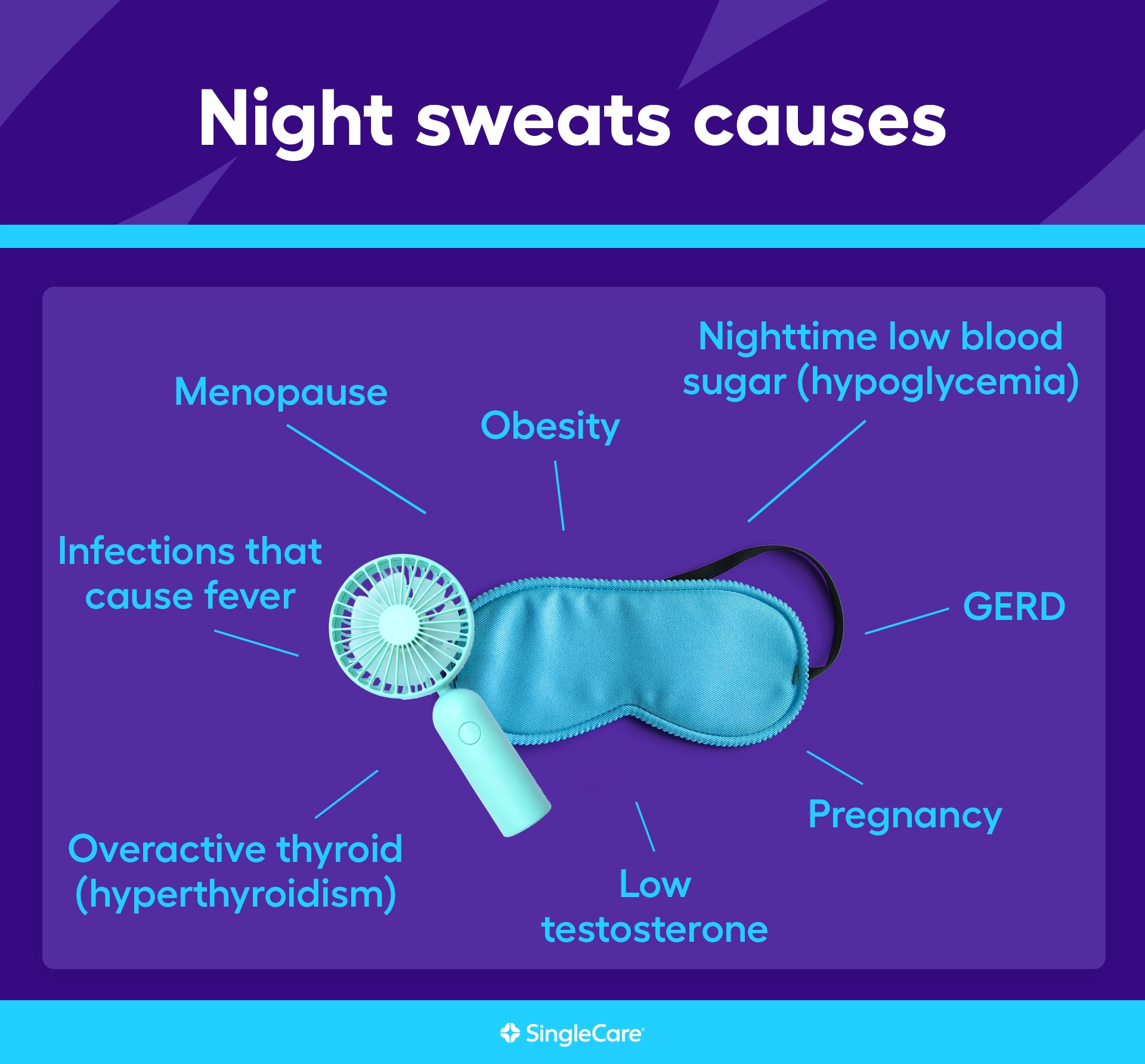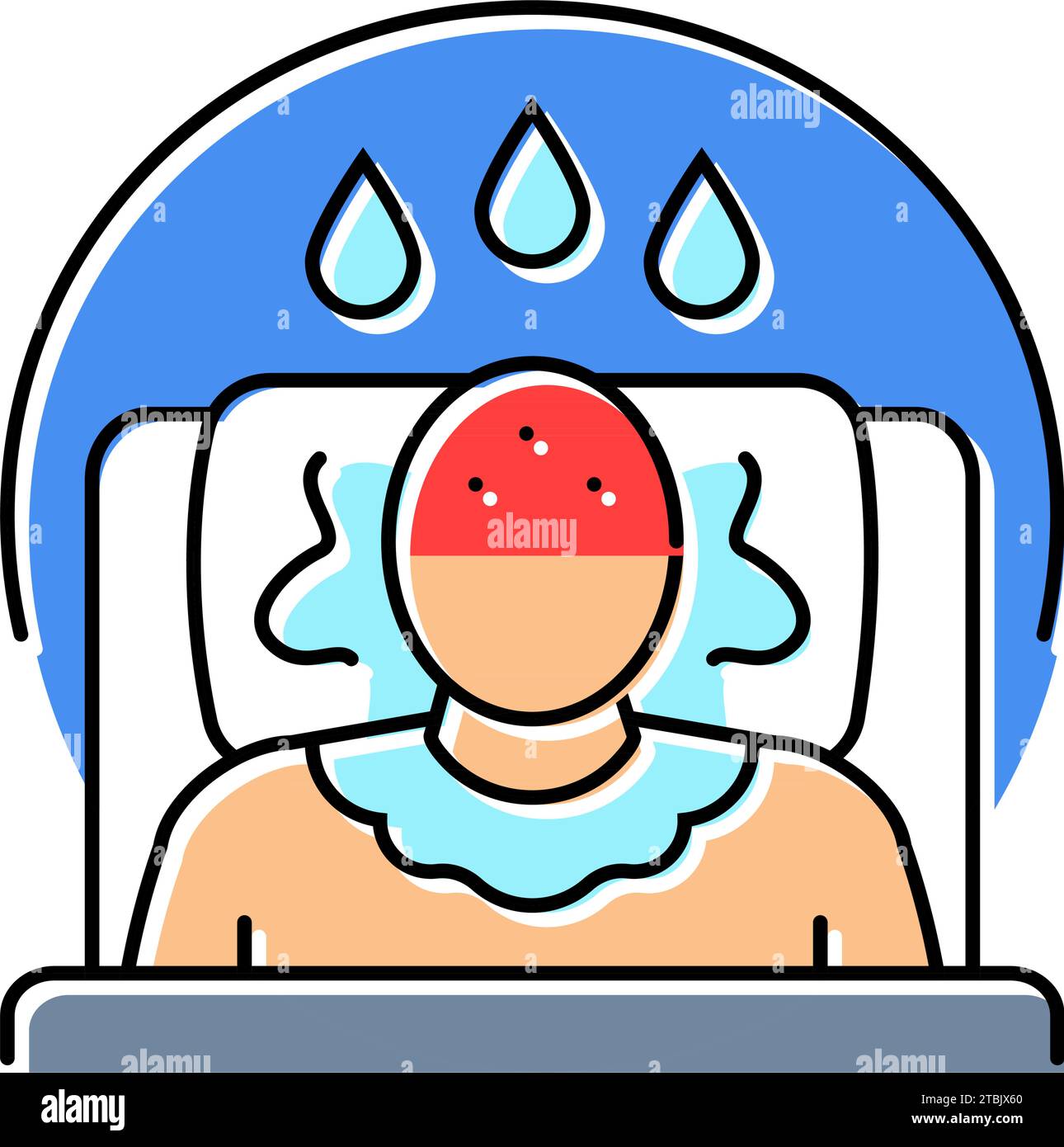Breastfeeding night sweats can be an uncomfortable experience for many mothers, but understanding the causes and solutions can help you manage this condition effectively. Whether you're a new mother or a seasoned parent, it's essential to recognize that night sweats during breastfeeding are relatively common and often linked to hormonal changes. This article will delve into the reasons behind this phenomenon and provide practical advice to help you regain control of your sleep.
Breastfeeding is a beautiful and natural process that strengthens the bond between mother and baby. However, it can also bring about some unexpected challenges, such as night sweats. These excessive perspiration episodes during the night can disrupt your rest and leave you feeling exhausted during the day. But don't worry—there are ways to address this issue.
In this comprehensive guide, we will explore the causes of breastfeeding night sweats, offer solutions to alleviate discomfort, and provide expert tips for improving sleep quality. Whether you're dealing with hormonal changes, stress, or other factors, we're here to help you navigate this phase of motherhood with confidence.
Read also:Andrew Vanwyngarden Wife Exploring The Life And Love Of The Mgmt Frontman
Table of Contents
- Introduction
- Causes of Breastfeeding Night Sweats
- Hormonal Changes During Breastfeeding
- Dietary Factors That Trigger Sweats
- Environmental Factors and Night Sweats
- Tips for Managing Breastfeeding Night Sweats
- Improving Sleep Hygiene
- Health Conditions Linked to Night Sweats
- Expert Advice for Managing Sweats
- Conclusion
Introduction to Breastfeeding Night Sweats
Breastfeeding night sweats refer to the excessive perspiration that some mothers experience during the night while breastfeeding. This condition can range from mild discomfort to severe episodes that drench your bedding. While night sweats may feel alarming, they are often a result of hormonal fluctuations and other factors associated with breastfeeding.
For many mothers, the primary concern is how to manage this condition without compromising their health or the quality of their sleep. Understanding the underlying causes of breastfeeding night sweats is the first step toward finding effective solutions. Whether you're dealing with hormonal changes, dietary triggers, or environmental factors, this article will provide actionable advice to help you cope with this challenge.
Causes of Breastfeeding Night Sweats
Hormonal Fluctuations
Hormonal changes are one of the leading causes of breastfeeding night sweats. During breastfeeding, the body produces higher levels of prolactin, a hormone that stimulates milk production. This hormone can also affect your body's temperature regulation, leading to increased perspiration during the night.
Stress and Anxiety
Stress and anxiety can exacerbate night sweats in breastfeeding mothers. The demands of caring for a newborn, coupled with sleep deprivation, can take a toll on your mental and physical health. Managing stress through relaxation techniques and self-care can help alleviate this issue.
Underlying Health Conditions
In some cases, breastfeeding night sweats may be linked to underlying health conditions such as thyroid disorders or infections. If you experience persistent night sweats or other symptoms, it's important to consult your healthcare provider for a proper diagnosis and treatment plan.
Hormonal Changes During Breastfeeding
Breastfeeding triggers significant hormonal changes in the body, which can contribute to night sweats. The production of prolactin and oxytocin, hormones essential for milk production, can disrupt your body's natural temperature regulation. Additionally, fluctuations in estrogen levels during breastfeeding may further exacerbate this condition.
Read also:Alan Dershowitz Hourly Rate A Comprehensive Analysis
Key Hormones Involved:
- Prolactin: Stimulates milk production and affects body temperature regulation.
- Oxytocin: Triggers milk ejection reflex and can cause sweating during feeding sessions.
- Estrogen: Fluctuations in estrogen levels may contribute to night sweats.
Dietary Factors That Trigger Sweats
Certain dietary habits can also trigger breastfeeding night sweats. Consuming spicy foods, caffeine, or alcohol may increase your body temperature and lead to excessive perspiration during the night. Additionally, dehydration can worsen this condition, making it crucial to maintain proper fluid intake while breastfeeding.
Tips for Managing Diet-Related Sweats
- Avoid spicy foods, especially close to bedtime.
- Limit caffeine and alcohol consumption.
- Stay hydrated by drinking plenty of water throughout the day.
Environmental Factors and Night Sweats
Your sleeping environment can significantly impact the occurrence of breastfeeding night sweats. Factors such as room temperature, bedding materials, and humidity levels can either alleviate or worsen this condition. Creating a comfortable sleeping space is essential for improving sleep quality and reducing night sweats.
Optimizing Your Sleep Environment
- Keep your bedroom cool and well-ventilated.
- Use breathable fabrics for bedding and nightclothes.
- Consider using a dehumidifier if humidity levels are high.
Tips for Managing Breastfeeding Night Sweats
Managing breastfeeding night sweats requires a combination of lifestyle adjustments and self-care practices. Here are some practical tips to help you cope with this condition:
Self-Care Strategies
- Practice relaxation techniques such as deep breathing or meditation to reduce stress.
- Engage in regular physical activity to improve overall health and sleep quality.
- Prioritize rest by taking naps when your baby sleeps.
Home Remedies
- Use a fan to keep your bedroom cool and comfortable.
- Wear lightweight, moisture-wicking pajamas to stay dry during the night.
- Keep a glass of water by your bedside to stay hydrated.
Improving Sleep Hygiene
Sleep hygiene refers to the habits and practices that promote good sleep quality. Improving your sleep hygiene can help reduce the frequency and severity of breastfeeding night sweats. Establishing a consistent bedtime routine and creating a restful sleep environment are key components of effective sleep hygiene.
Steps to Enhance Sleep Hygiene
- Go to bed and wake up at the same time every day.
- Avoid screen time at least an hour before bed.
- Create a relaxing bedtime routine, such as reading or taking a warm bath.
Health Conditions Linked to Night Sweats
In some cases, breastfeeding night sweats may be a symptom of an underlying health condition. Conditions such as thyroid disorders, diabetes, or infections can cause excessive perspiration during the night. If you experience persistent night sweats or other concerning symptoms, it's important to consult your healthcare provider for a thorough evaluation.
When to Seek Medical Attention
- If night sweats are accompanied by fever, chills, or weight loss.
- If you experience fatigue, palpitations, or other unusual symptoms.
- If your night sweats persist despite lifestyle changes and self-care measures.
Expert Advice for Managing Sweats
Consulting with healthcare professionals, such as lactation consultants or doctors specializing in maternal health, can provide valuable insights into managing breastfeeding night sweats. These experts can offer personalized advice based on your specific needs and circumstances.
Expert Recommendations:
- Monitor your diet and adjust it to minimize triggers for night sweats.
- Stay hydrated and maintain a balanced lifestyle to support overall health.
- Seek professional guidance if night sweats persist or worsen over time.
Conclusion
Breastfeeding night sweats are a common yet manageable condition that many mothers experience during this phase of motherhood. By understanding the causes and implementing effective solutions, you can reduce the frequency and severity of night sweats and improve your overall sleep quality. Remember to prioritize self-care, optimize your sleep environment, and seek professional advice if needed.
We invite you to share your experiences with breastfeeding night sweats in the comments section below. Your insights can help other mothers navigate this challenge with confidence. Don't forget to explore our other articles for more tips and advice on parenting and maternal health.

